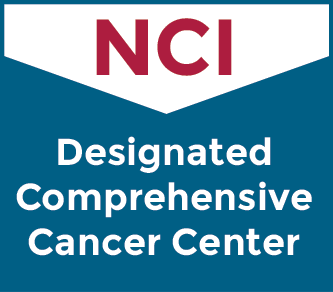Clinical Trials
Clinical Trial Search
Clinical Trials for Cancer in Florida at Moffitt Cancer Center
Clinical trials are important medical research studies that can advance the standard of care for all individuals who face cancer, both now and in the future. Clinical trials help:
- Develop new and better strategies for the prevention, screening, diagnosis and treatment of various types of malignancies.
- Evaluate these strategies through controlled research studies.
Most of today's effective treatments for cancer are based on the results of past clinical trials.
If you are interested in learning more about clinical trials, our clinical trial navigators can discuss your options and recommend opportunities that may be suitable for you. Call 813-745-6100 or 1-800-679-0775 (toll-free) or submit a clinical trials inquiry form.
As researchers study the effectiveness of promising new options as compared to those that are currently available, clinical trials offer participants unique opportunities to be among the first to benefit from recent scientific progress that has the potential to enhance both patient outcomes and quality of life. It is important to note that these studies are carefully designed to make the health and safety of every participant a top priority. Even so, clinical trials are not suitable for everyone, and participation is entirely voluntary.
At Moffitt Cancer Center, each patient’s treatment plan is individualized and collaboratively developed by a multispecialty team of experts who evaluate a number of factors to ensure the best possible strategy. Our patients have access to a full range of options, which may include clinical trials of new:
- Screening and diagnostic tests
- Imaging techniques
- Surgical procedures
- Chemotherapy drugs and drug combinations
- Radiation therapy delivery methods
- And more
Moffitt is firmly established at the forefront of cancer research with opportunities for patients who are at different points in their cancer journeys.
Our robust portfolio of clinical trials includes:
Breast cancer clinical trials,
And much more.
If our tumor board believes that a patient could potentially benefit from participation in a clinical trial, we will identify appropriate studies and fully educate the patient to help him or her make an informed choice about whether to enroll.
 The Only Florida-based NCI-designated Comprehensive Cancer Center
The Only Florida-based NCI-designated Comprehensive Cancer Center
Recognized for its scientific excellence, Moffitt is the only National Cancer Institute-designated Comprehensive Cancer Center based in Florida.
FAQs about participating in a clinical trial at Moffitt in Florida
- The decision to participate in a clinical trial is highly personal, and that decision ultimately belongs to the patient.
- Once a patient elects to participate, he or she can opt out at any time for any reason (or no reason at all).
- Patients who participate in clinical trials at Moffitt can have peace of mind in knowing that they are being closely and continually monitored by multiple experts who are committed to protecting their health, safety and well-being.
- Patients are fully educated about the trial to help them make an informed choice.
Are clinical trials right for you?

